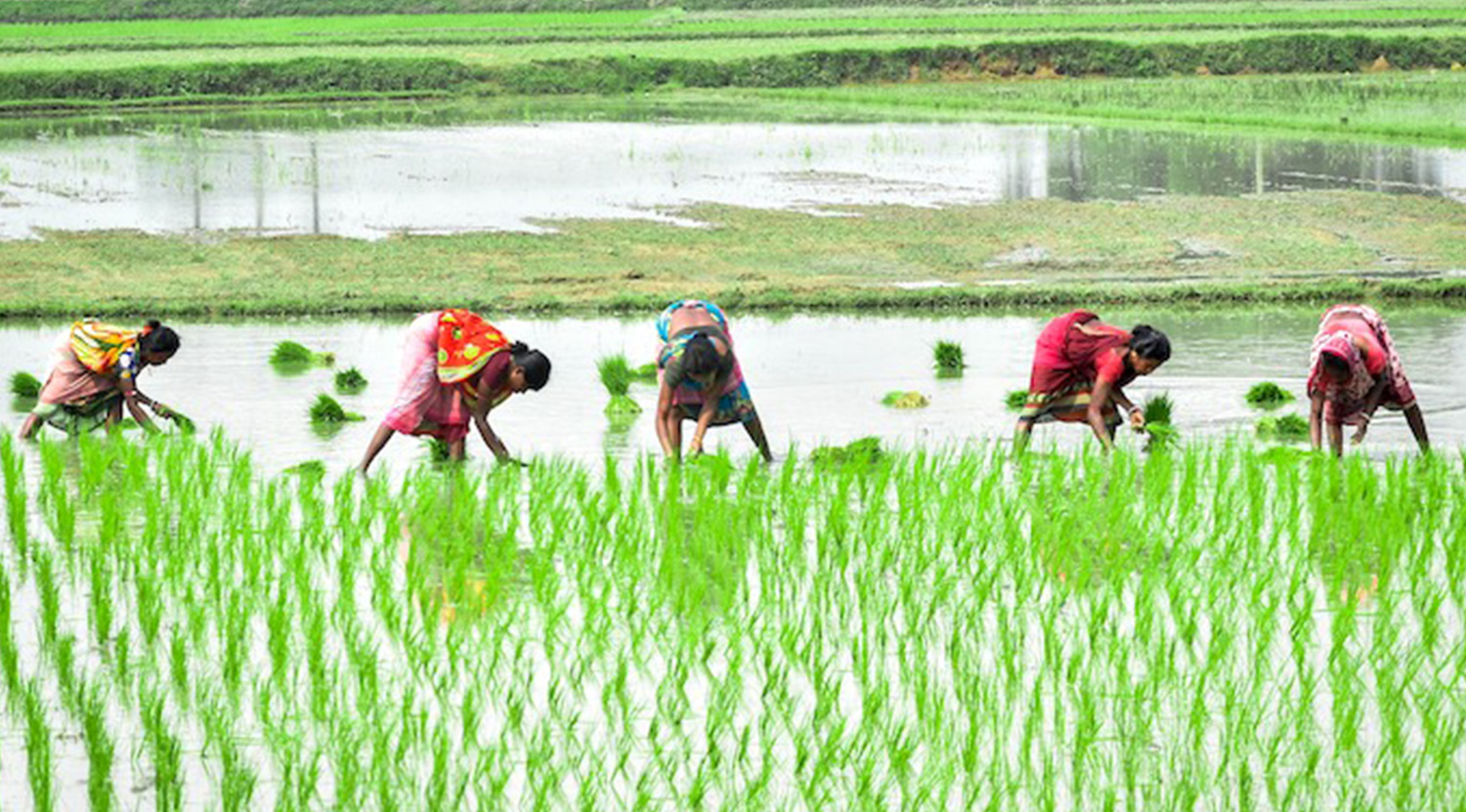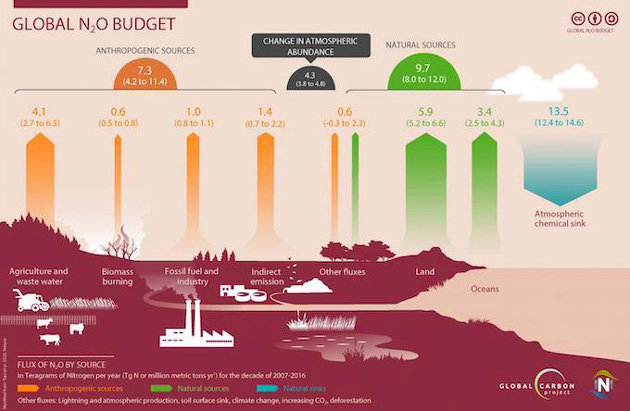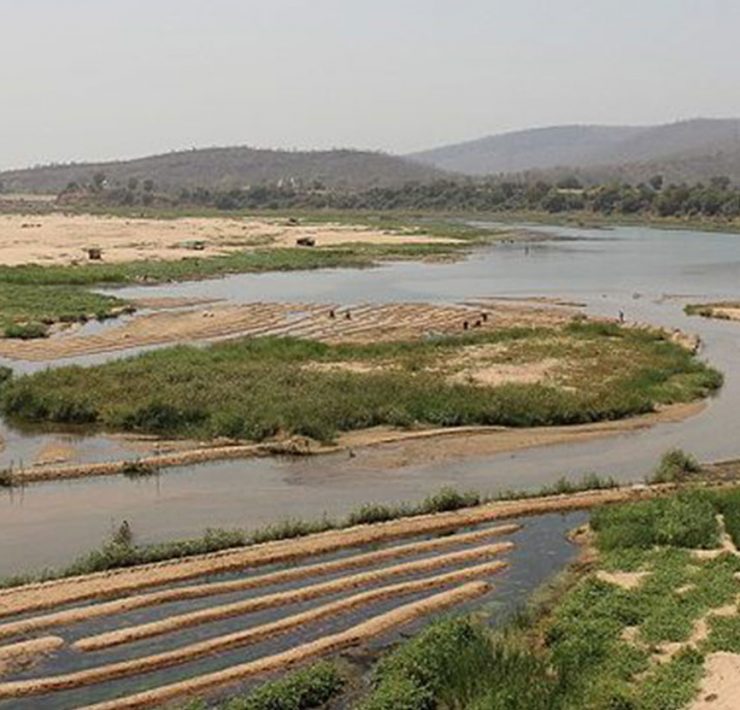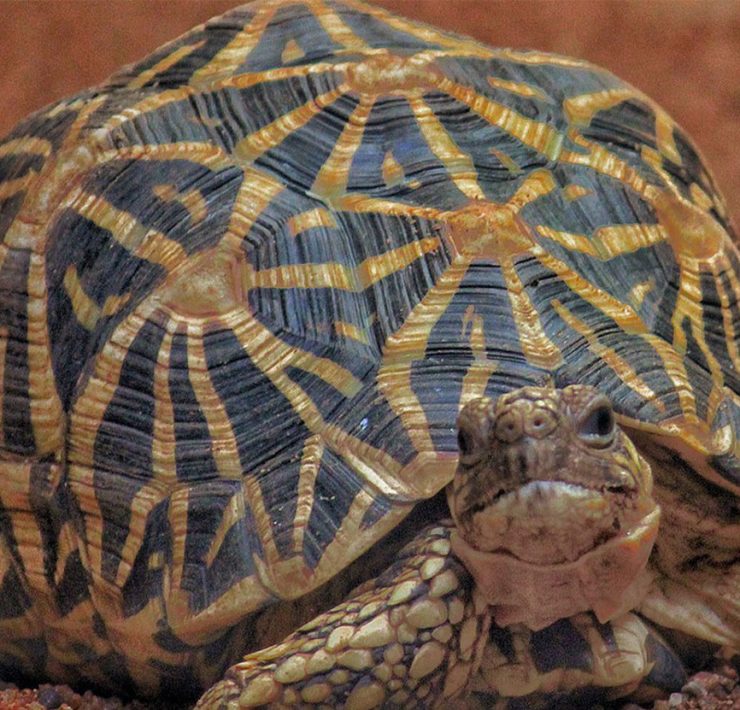The way we grow food is an increasing climate threat

Rising use of nitrogen-based fertilisers in agriculture is releasing copious amounts of nitrous oxide (N20), an international consortium of scientists has warned. While carbon dioxide excess in the atmosphere is the chief cause of climate change, nitrous oxide is a gas that warms up the atmosphere 300 times more than carbon dioxide, molecule by molecule.
N2O is now accumulating in the atmosphere so fast that global temperatures may rise by a dangerous 3 degrees Celsius this century, the research found.
N2O has risen 20% from pre-industrial levels, and its growth has accelerated over recent decades due to emissions from various human activities, the researchers said in a study published in Nature journal.
More than 100 million tonnes of nitrogen-based fertilisers are spread on crops. A similar amount is put on pastures and crops through manure from livestock.
As a result, N2O emissions have risen from 270 parts per billion (ppb) in 1750 to 331 ppb in 2018, with the fastest growth seen in the past 50 years due to emissions from human activities, the study found.
Human-induced emissions increased by 30% over the last 40 years to 7.3 million tonnes of nitrogen per year, the study said.
The objective of the study — A comprehensive quantification of global nitrous oxide sources and sinks — was to produce the most comprehensive assessment to date of all sources and sinks of the potent greenhouse gas, also known as laughing gas.
“The dominant driver of the increase in atmospheric nitrous oxide comes from agriculture, and the growing demand for food and feed for animals will further increase global nitrous oxide emissions,” said lead author Hanqin Tian, director of the International Centre for Climate and Global Change Research at Auburn University. “There is a conflict between the way we are feeding people and stabilising the climate.”

Tian co-led a global group of scientists from 48 research institutions in 14 countries under the umbrella of the Global Carbon Project and the International Nitrogen Initiative.
India and China
Emissions from synthetic fertilisers dominate releases in China, India and the US, while emissions from the application of livestock manure as fertiliser dominates releases in Africa and South America, the study found.
The highest growth rates in emissions are found in emerging economies, particularly Brazil, China and India, where crop production and livestock numbers have increased.
“This new analysis calls for a full-scale rethink in the ways we use and abuse nitrogen fertilisers globally and urges us to adopt more sustainable practices in the way we produce food, including the reduction of food waste,” said co-author Josep Canadell, executive director of the Global Carbon Project.
N2O also depletes the stratospheric ozone layer, which protects Earth from Sun’s harmful ultraviolet radiation.
N2O emissions are increasing at a “devastating” rate, the study found, faster than predictions by the Intergovernmental Panel on Climate Change, the global body of climate scientists.
Rising N2O emissions are jeopardising the ability to control climate change. “Current emissions are tracking global temperature increases above 3 degrees Celsius, twice the temperature target of the Paris accord,” said co-author Robert Jackson, professor at Stanford University and chair of the Global Carbon Project.
N2O must be part of global efforts to reduce greenhouse gas emissions, scientists said.
“This study calls for immediate action on controlling the emissions of N2O,” said co-author Parvadha Suntharalingam of University of East Anglia in Britain. “If we don’t, then to reach the Paris targets, we’re going to have to control other greenhouse gases like CO2 and methane even more stringently,”
This article first appeared on India Climate Dialogue.







